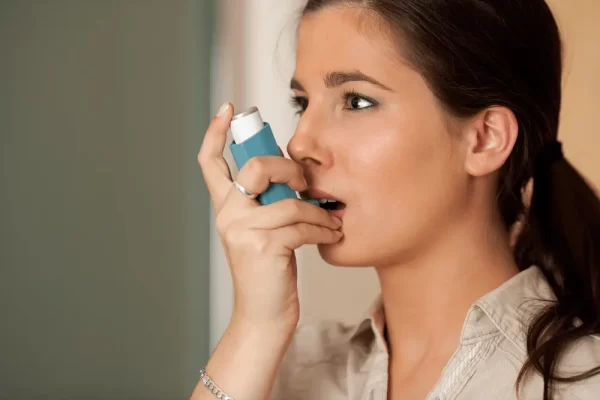Winter Season could be pleasant for some people who feel that there would be a relief from drenching and sweaty body, but people with another side of the coin believe that this is the season when diseases are hitting us hard.
The spike in COVID cases was a prime example of how lousy winter season and extreme cold weather could turn up terrible for people suffering from breathing issues, especially those who have pro-longed asthma.
Breathing problems, gastrointestinal matters, and much more strike us more when stepping into the winter season because of the heat produced in our body and the less movement.
Asthma is one of the most common diseases that affect people even more during the winter season. It involves the airway passage inflammation and infection in the area, making it difficult to breathe when exposed to extreme cold weather.
The whole breathing phenomenon involves the nose and mouth that helps the lungs breathe only warm air by modifying it to breathe easily. But while there is no moisture in the dry air during the winter, the lungs contract and tightens. It happens so because of the low humidity in the air during winter, and when we inhale such as dry and cold air through our airways, our body doesn’t get the chance to warm itself, and breathing becomes difficult.
The entire process of inhaling dry air till the tightening of the lungs leads to asthma attacks during winters most of the time. Moreover, research done in the past has mentioned that asthma triggers are triggers in the winter season due to coldness. Still, new studies have proved that the low humidity level is the root cause of all the problems.
Rigorous physical activity causes more asthma attacks during winter because of our mouth’s inability to warm up the cold air better than the air inhaled through the nose. Hence, being outdoor more especially causes more problems in asthmatic patients.
The symptoms of the disease to look for during winters
When it comes to asthma attacks triggered due to cold weather, it could become severe when the asthmatic patient is exposed to an outdoor environment with freezing temperatures.
A person may have the following symptoms if he/she is asthmatic, and the cold environment triggers it even more:
- Shortness of Breathe
- Pain in Chest
- Tightening of chest and sensation similar to that
- Coughing
If a person is shifted from a low temperature to a warmer place, the symptoms might gradually reduce.
Generally, patients with asthma are prescribed for carrying a short inhaler with them and use it when they feel their asthma attack triggering again. A short-acting inhaler is named because it contains albuterol, a beta-agonist, and carrying it outside helps a person while experiencing an attack in cold weather.
If experiencing symptoms of the disease, an asthmatic person must be moved to a warmer place as it helps the air move through the passage, making it easier to breathe. However, there are treatments available for treating these conditions if they prevail for a longer duration.
You must consult with a doctor if exercise and rigorous physical activity make your breathing difficult. A consistent effort to manage and control the symptoms related to a cold temperature that triggers asthma could resolve the issue. A medical expert could also prescribe a bronchodilator for long-term effects.
Things you can do to prevent Asthma during Winter Season
One can follow specific ways to manage and prevent asthma attacks during winters, not to turn to be severe.
- Add up warming up aerobic exercise before you plan to go outdoor. The exercising could be for 5-10 minutes every day.
- One should carry their short-acting inhaler with them before going out so that exposure to cold temperature does not affect their air passageways.
- Covering the mouth has become necessary, especially during this pandemic, which could prevent asthma patients from inhaling dry air and shrinking their air passageways to keep it warm in the mouth and nose.
- Try breathing more with the nose as many times as possible so that the body keeps itself warm, especially the lungs.
It is best to consider not going outside during freezing temperatures if one suffers from asthma, as dry air during winters could cause severe asthma attack symptoms in a person. Intensive physical exercise causes worse symptoms and triggering of asthma in people.
Hence, it is always advisable to consult a physician if the problem persists so that proper long-term treatment could be advised for better results and reduced symptoms.




